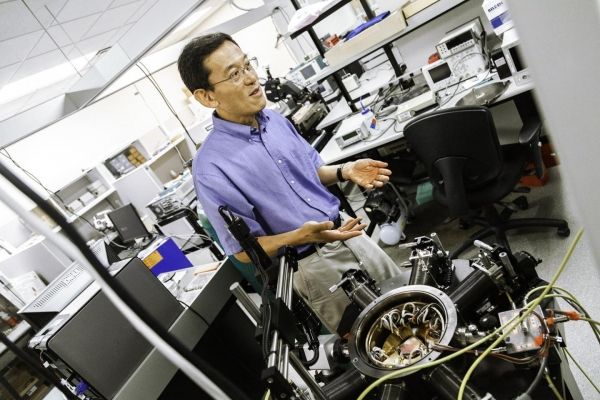A University of Texas at Dallas physicist has teamed with Texas Instruments Inc. to design a better way for electronics to convert waste heat into reusable energy.
The collaborative project demonstrated that silicon’s ability to harvest energy from heat can be greatly increased while remaining mass-producible.
Dr. Mark Lee, professor and head of the Department of Physics in the School of Natural Sciences and Mathematics, is the corresponding author of a study published July 15 in Nature Electronics that describes the results. The findings could greatly influence how circuits are cooled in electronics, as well as provide a method of powering the sensors used in the growing “internet of things.”
“Sensors go everywhere now. They can’t be constantly plugged in, so they must consume very little power,” Lee said. “Without a reliable light source for photovoltaic energy, you’re left needing some kind of battery — one that shouldn’t have to be replaced.”
Read more at University of Texas at Dallas
Image: Dr. Mark Lee, head of the Department of Physics in the School of Natural Sciences and Mathematics, explains his research into the thermoelectric harvesting ability of silicon "nanoblades." (Credit: University of Texas at Dallas)


